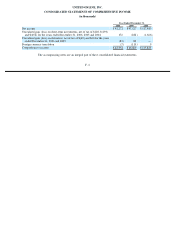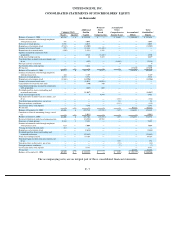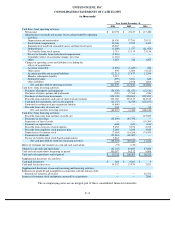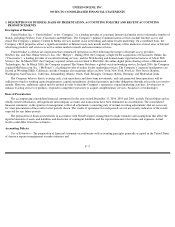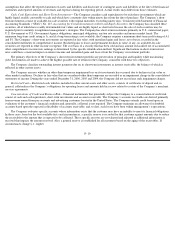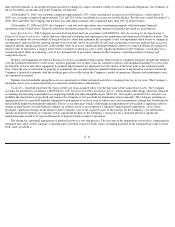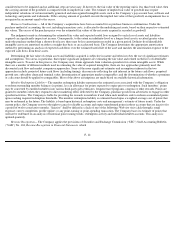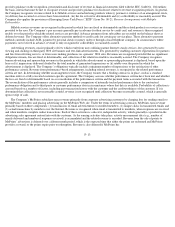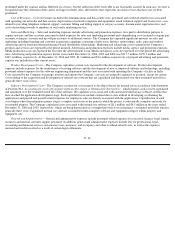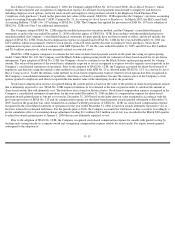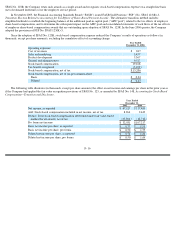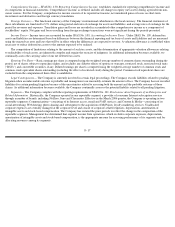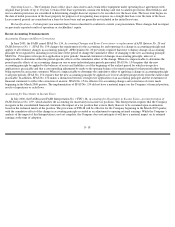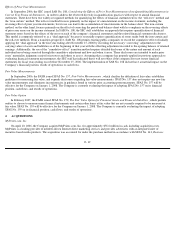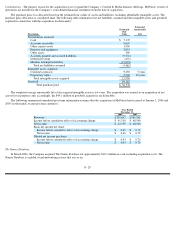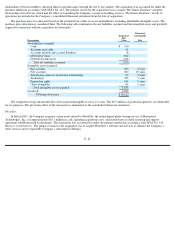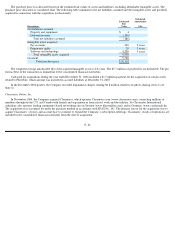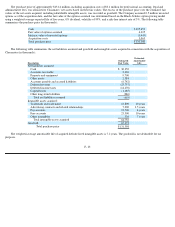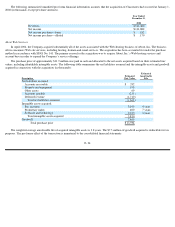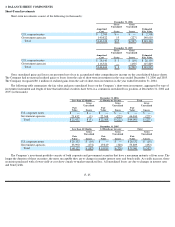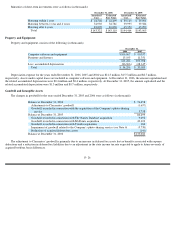Classmates.com 2006 Annual Report Download - page 78
Download and view the complete annual report
Please find page 78 of the 2006 Classmates.com annual report below. You can navigate through the pages in the report by either clicking on the pages listed below, or by using the keyword search tool below to find specific information within the annual report.
SFAS No. 123R, the Company treats such awards as a single award and recognizes stock-based compensation expense on a straight-line basis
(net of estimated forfeitures) over the employee service period.
In November 2005, the Financial Accounting Standards Board (“FASB”) issued FASB Staff Position (“FSP”) No. SFAS 123(R)-3,
Transition Election Related to Accounting for Tax Effects of Share-Based Payment Awards . The alternative transition method includes
simplified methods to establish the beginning balance of the additional paid-in capital pool (“APIC pool”) related to the tax effects of employee
share-
based compensation, and to determine the subsequent impact on the APIC pool and consolidated statements of cash flows of the tax effects
of employee share-based compensation awards that are outstanding upon adoption of SFAS No. 123R. In the June 2006 quarter, the Company
adopted the provisions of FSP No. SFAS 123(R)-3.
Since the adoption of SFAS No. 123R, stock-based compensation expense reduced the Company’s results of operations as follows (in
thousands, except per share amounts), excluding the cumulative effect of accounting change:
The following table illustrates (in thousands, except per share amounts) the effect on net income and earnings per share in the prior year as
if the Company had applied the fair value recognition provisions of SFAS No. 123, as amended by SFAS No. 148, Accounting for Stock-Based
Compensation—Transition and Disclosure .
F- 16
Year Ended
December 31, 2006
Operating expenses:
Cost of revenues
$
817
Sales and marketing
3,457
Product development
5,367
General and administrative
9,527
Stock-based compensation
19,168
Tax benefit recognized
(3,962
)
Stock-based compensation, net of tax
$
15,206
Stock
-
based compensation, net of tax per common share:
Basic
$
0.24
Diluted
$
0.23
Year Ended
December 31,
2005
2004
Net income, as reported
$
47,127
$
117,480
Add: Stock
-
based compensation included in net income, net of tax
8,264
2,449
Deduct: Total stock-based compensation determined under fair value-based
method for all awards, net of tax
(23,360
)
(12,712
)
Pro forma net income
$
32,031
$
107,217
Basic net income per share, as reported
$
0.77
$
1.91
Basic net income per share, pro forma
$
0.52
$
1.75
Diluted net income per share, as reported
$
0.74
$
1.81
Diluted net income per share, pro forma
$
0.50
$
1.64


